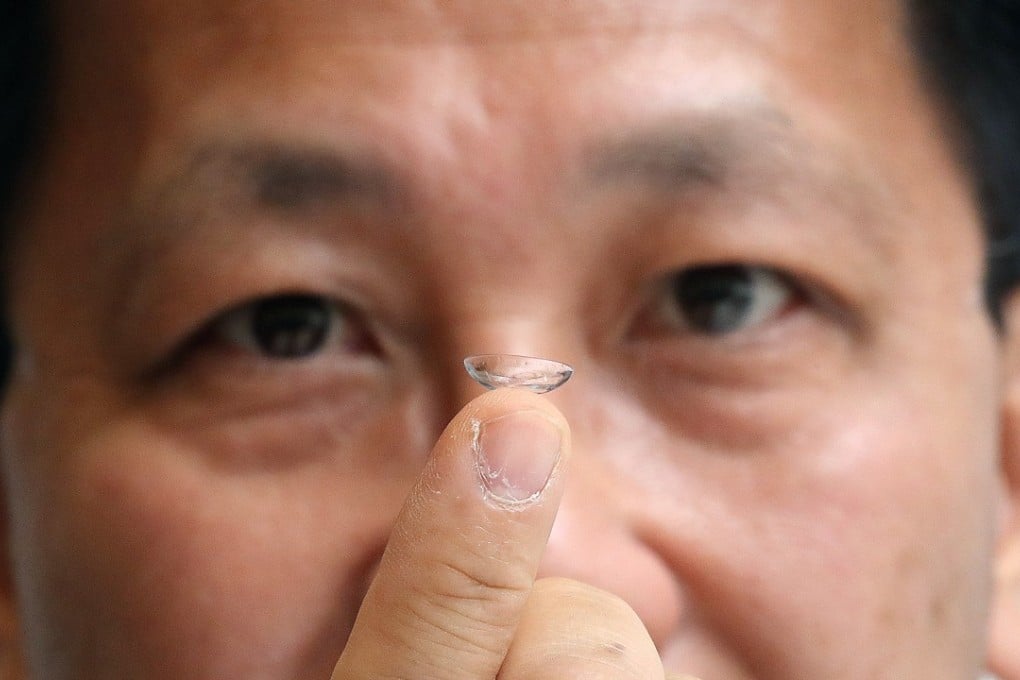Contact lenses invented in Hong Kong to correct child myopia will cost 40 per cent less than current treatment
Developed by Polytechnic University researchers, the device is the first of its kind and could slow progression of the condition by up to 60 per cent

A Hong Kong university whose researchers invented the first-ever day contact lenses to reduce short-sightedness in children has partnered with a local start-up to produce the device, which will be 40 per cent cheaper than an existing myopia treatment.
Polytechnic University’s Defocus Incorporated Soft Contact (DISC) will cost HK$8,800 per year (US$1,125) – this is for four sets of lenses as each pair has to be replaced every quarter.
The custom-made lenses have to be worn during the day and for an average of 10 years.
Doctors raise the alarm at steep rise in myopia among Hong Kong children
In comparison, the orthokeratology lenses now available for children to wear while they are sleeping costs HK$15,000 a year on average. They are only suitable for up to a certain degree of short sightedness.
Myopia occurs when light that enters the front of the eye, or the cornea, and focuses at a point in front of the retina – the light-sensitive tissue on the back of the eye – rather than on it. This causes the eyeball to become too long.
Mild cases do not pose a significant risk, but severe myopia can lead to retinal detachment, glaucoma or cataracts. People with severe myopia usually start getting near-sighted when young and it progresses year after year.
While orthokeratology lenses are designed to reshape the cornea, the DISC lenses are designed such that there would be a clear image on the retina and a blurred image in front of it. This would prevent the eyeball from growing too large.
China’s myopia epidemic: why a simple solution is being ignored
